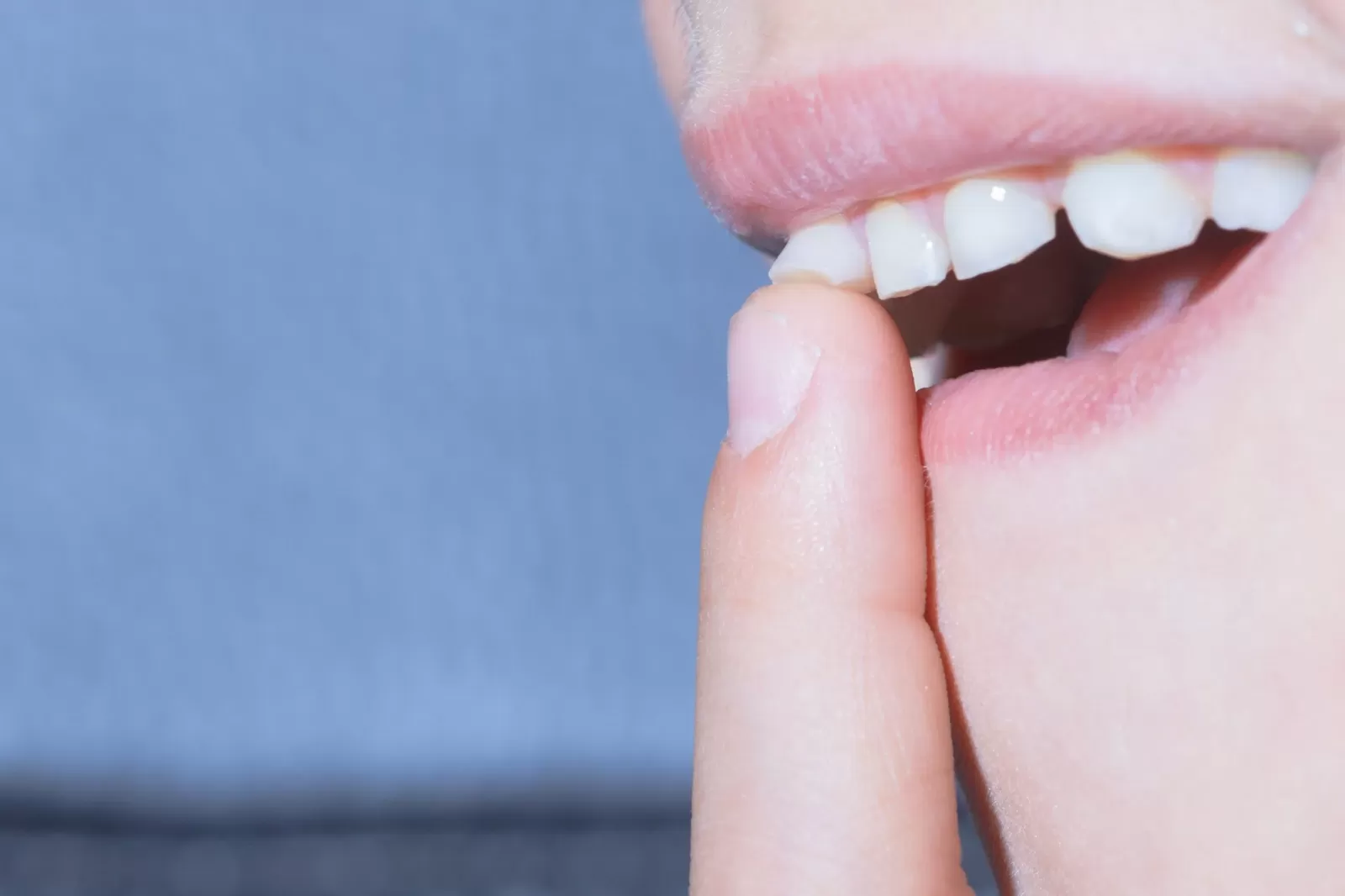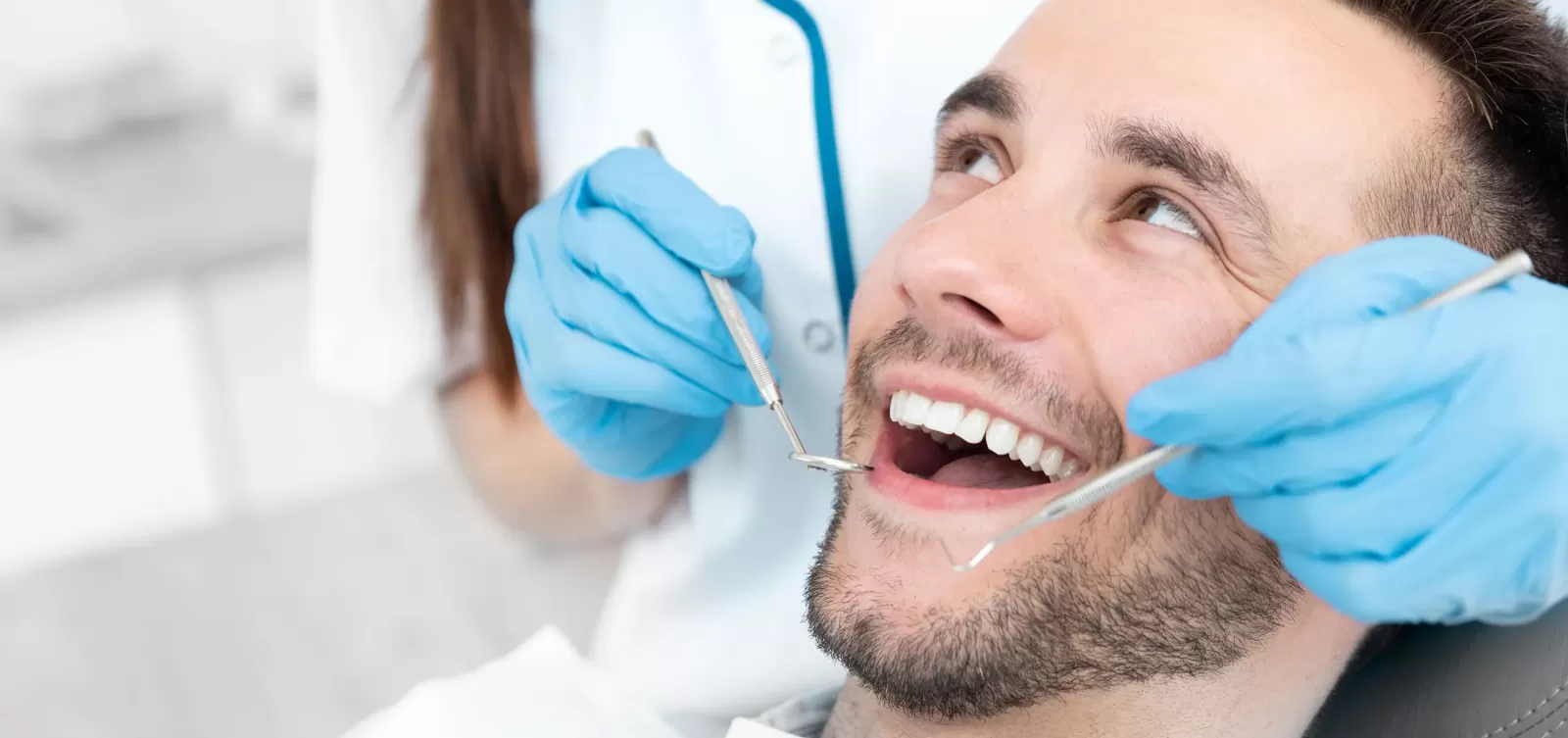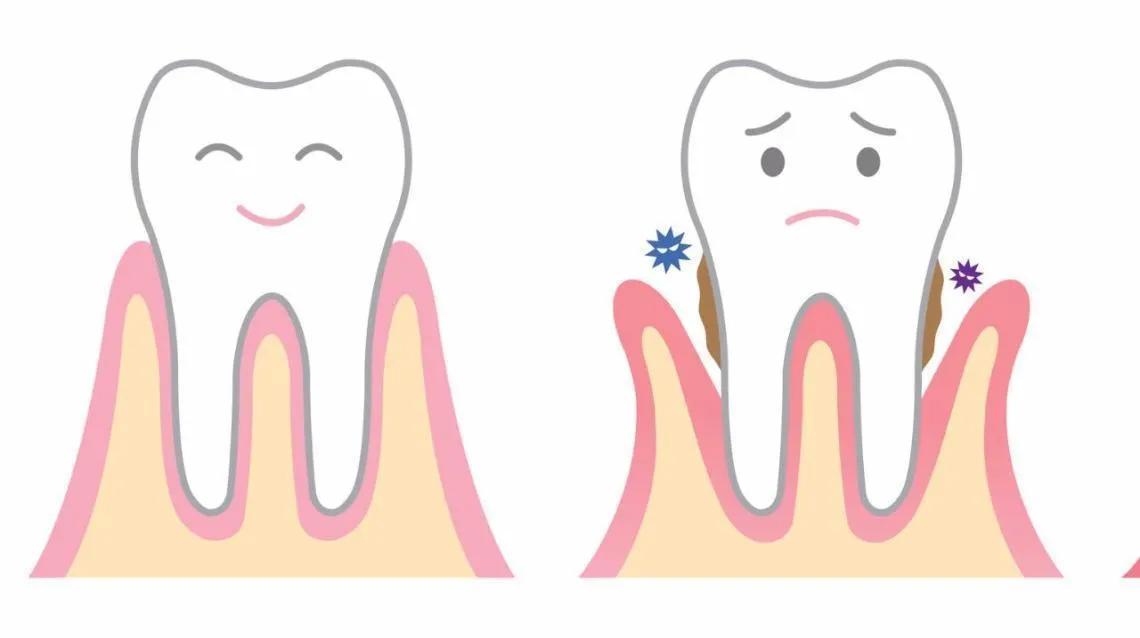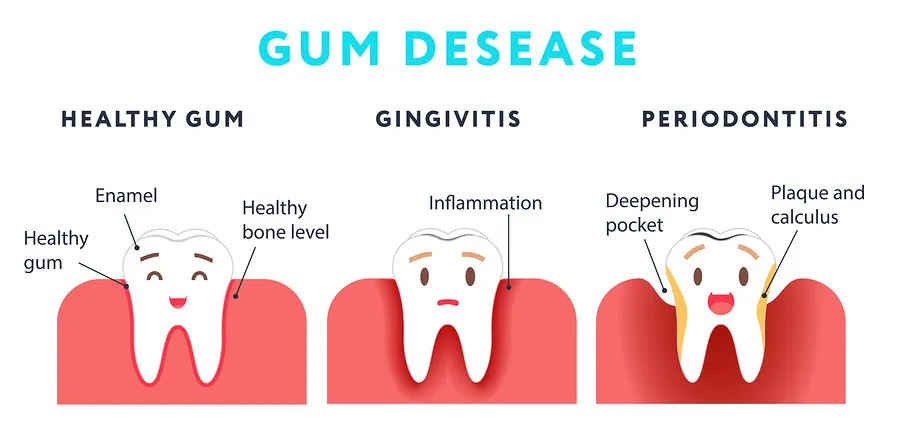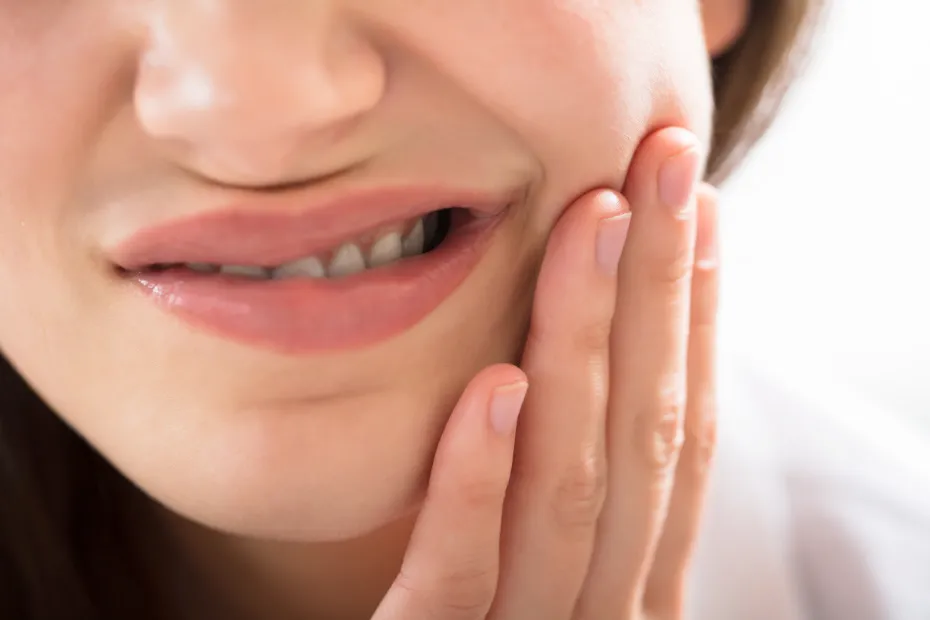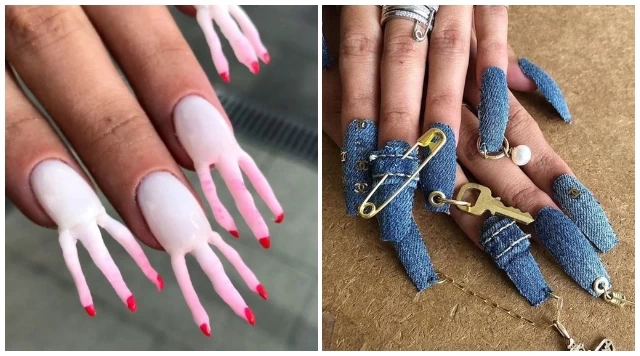Having a loose tooth as a child is often an exciting milestone, signaling a visit from the tooth fairy. However, when you’re an adult, discovering a loose tooth can be quite concerning. After all, permanent teeth are meant to last a lifetime. So, why is my adult tooth loose, and is there a way to prevent it from falling out?
Loose permanent teeth are a surprisingly common issue that can impact individuals of any age. The reassuring news is that in many instances, a loose tooth can be stabilized, but it requires prompt professional attention. If you notice your tooth wiggling, it’s essential to schedule an appointment with a skilled dentist without delay.
Wondering, "Why is my adult tooth loose?" Read on to discover the potential causes and learn how to maintain the health of your teeth.
#1. Why is My Adult Tooth Loose?
Generally speaking, teeth do not fall out on their own. Various internal and external factors can contribute to a loose adult tooth. Common causes include poor dental health, trauma to the mouth, and underlying medical conditions.
1.1. Trauma
Dental trauma from falls, sports injuries, or accidents is one of the leading causes of loose adult teeth. While some injuries may heal naturally, it’s crucial to visit a dentist immediately to ensure the tooth's root and surrounding gums haven’t sustained damage.
1.2. Gum Disease
If you’re wondering, "Why is my adult tooth loose?" and there’s no obvious cause, gum disease might be the culprit. Periodontitis, a bacterial infection, erodes the gums, soft tissue, and bone supporting your teeth. As the disease advances, it can cause gum recession and loosen permanent teeth. Other signs of advanced gum disease include persistent bad breath, bleeding gums when flossing, and swollen, tender gums.
1.3. Stress
Chronic teeth clenching or grinding, often due to stress—a condition known as bruxism—can gradually loosen your teeth. Many people grind their teeth unknowingly at night.
1.4. Pregnancy and Menopause
Hormonal changes during pregnancy or menopause can impact dental health. Elevated levels of estrogen and progesterone during pregnancy can temporarily loosen the ligaments and bones in the jaw. Conversely, menopause often leads to decreased estrogen production, which can result in bone density loss and a higher risk of loose teeth.
1.5. Medications & Underlying Conditions
You might ask, "Why is my adult tooth loose?" Certain medications can be a factor. Drugs like anti-seizure medications (e.g., phenytoin or Dilantin®) can hinder calcium absorption, weakening teeth over time. Many common medications, such as contraceptives, antidepressants, and pain relievers, can cause dry mouth, increasing the risk of tooth decay.
It's important not to stop taking any prescribed medication without consulting your doctor, even if you suspect it might be affecting your dental health.
Several underlying health conditions can also elevate the risk of gum disease, a prevalent cause of loose teeth. These include: HIV, Cancer, Arthritis, Diabetes, Osteoporosis.
Understanding the various reasons behind a loose tooth and addressing them promptly can help preserve your dental health. If you find yourself wondering, "Why is my adult tooth loose?" consult with a dental professional to identify the underlying cause and appropriate treatment.
#2. When is an Adult Tooth Loose an Emergency?
Ideally, you should schedule an examination with your dentist as soon as you notice that an adult tooth has become loose. If left unaddressed, the condition can worsen, leading to damage to the root and gums and potentially causing an infection. It’s crucial to contact your dentist immediately if you notice any of the following symptoms:
- Extreme Toothache: Severe pain may indicate an underlying issue that requires prompt attention.
- Changes in Shape, Color, or Swelling of the Gums: Alterations in your gums can signify gum disease or other serious conditions.
- Bleeding Gums When Biting or Pressing Your Gums: Persistent bleeding is a warning sign of gum disease or trauma.
- Sores on Your Tongue or Lips: These could be signs of an infection or other dental problems.
- Unnatural Tooth Mobility or Numb Tooth: Increased mobility or numbness suggests severe dental issues that require urgent care.
- Consistent Headaches: Frequent headaches can be related to dental problems, especially if accompanied by other symptoms.
- Appearance of Pus in Your Mouth: Pus indicates an infection that needs immediate treatment.
- Darkened Tooth Enamel: Discoloration can be a sign of decay or infection.
If you’re wondering, "Why is my adult tooth loose?" and observe any of these symptoms, it is critical to seek dental care immediately to prevent further complications and preserve your oral health.
#3. Why is My Adult Tooth Loose? Treatment Options
If you're dealing with a loose adult tooth, there are several treatment options available, depending on the severity of the issue and how early it is detected. Here’s a comprehensive look at the potential treatments:
3.1. Surgical Treatments
- Tissue and Bone Grafting: For cases where periodontal disease has weakened the bone and gum tissue, tissue and bone grafting might be necessary. This involves placing synthetic or natural bone around the weakened root to stimulate the regeneration of new bone and gum tissue. This procedure can help strengthen the foundation of the affected tooth.
- Flap Surgery: Flap surgery is performed to remove calculus that has accumulated in deep pockets of the gums. During this procedure, the gums are lifted back to clear away tartar buildup and then repositioned. Successful flap surgery ensures that the gums fit tightly around the teeth, reducing mobility.
- Guided-Tissue Regeneration (GTR): This surgical method utilizes barrier membranes to encourage the regeneration of tissues that have been destroyed by periodontitis. GTR helps restore the supporting structures of the tooth, promoting overall dental health.
3.2. Non-Surgical Treatments
- Splinting: For teeth that have become loose due to trauma, a common approach is splinting. This procedure involves bonding the loose tooth to adjacent teeth to stabilize it. While this provides temporary support, keep in mind that composite bonding is not a long-term solution.
- Deep Cleaning: If poor dental hygiene or gum disease is the culprit behind your loose tooth, a deep cleaning may be recommended. During this process, a dental hygienist will meticulously remove the infection that has infiltrated the gumline and caused gum recession. Once the infection is cleared, there is a good chance the gums will heal and tighten around the tooth, securing it once again.
If these methods fail to save the loose tooth, extraction may be necessary. In such cases, replacing the extracted tooth with a dental implant is often the best option to maintain oral functionality and aesthetics. Dental implants provide a durable and natural-looking replacement that can prevent further dental issues down the line.
By addressing the root cause and selecting the appropriate treatment, you can significantly improve the prognosis of a loose adult tooth and maintain a healthy smile.
#4. How to Prevent Loose Adult Teeth
The thought of a loose adult tooth can be alarming, but by taking proactive measures, you can significantly reduce your risk. Here are some effective strategies to maintain strong and healthy teeth:
- Practice Good Oral Hygiene: Maintaining excellent daily oral hygiene is crucial. Brush your teeth for at least two minutes, twice a day, and make sure to floss daily. This routine helps remove plaque and bacteria, which are primary contributors to gum disease and tooth decay.
- Schedule Professional Cleanings Every Six Months: Regular professional cleanings are vital. Not only do they provide a more thorough cleaning than you can achieve at home, but they also give your dentist the opportunity to identify and address any early signs of dental issues. Regular check-ups can prevent minor problems from becoming serious.
- Avoid Tobacco Products: Using tobacco products, whether smoking or chewing, is a leading cause of gum disease and oral cancer in the U.S. Quitting tobacco can greatly reduce your risk of developing these conditions and improve your overall oral health.
- Manage Teeth Grinding (Bruxism): If you grind or clench your teeth, consider using a bite splint (also known as a dental guard or night guard). This device can help protect your teeth from the wear and tear caused by grinding, reducing the risk of loose teeth and other dental damage.
- Wear a Mouthguard During Contact Sports: Protect your teeth from trauma by wearing a mouthguard when engaging in contact sports. Mouthguards can absorb shock and minimize the risk of injury to your teeth and gums.
- Stay Hydrated: Dry mouth can increase the risk of tooth decay and gum disease. Drink plenty of water throughout the day to keep your mouth moist, which helps wash away food particles and bacteria.
By integrating these practices into your daily routine, you can effectively prevent loose adult teeth and maintain a healthy, confident smile. Regular care and preventive measures are key to long-term oral health.
Conclusion
Why is my adult tooth loose? You may find the answer in the sections above. There are numerous reasons for this condition, and only a professional dentist can accurately diagnose the issue and recommend the most effective treatment plan. Until you can see your dentist, it is crucial to avoid wiggling or playing with the loose tooth, as this could exacerbate the damage.
For more tips and advice on beauty, health, fitness, and more, be sure to explore the additional articles on our website. Stay informed and take proactive steps to maintain your overall well-being.
Maybe you are interested:

Why Do Addicts Relapse? Commom Reasons And Treatment Options

How Many Teeth Do You Need for Implants?
